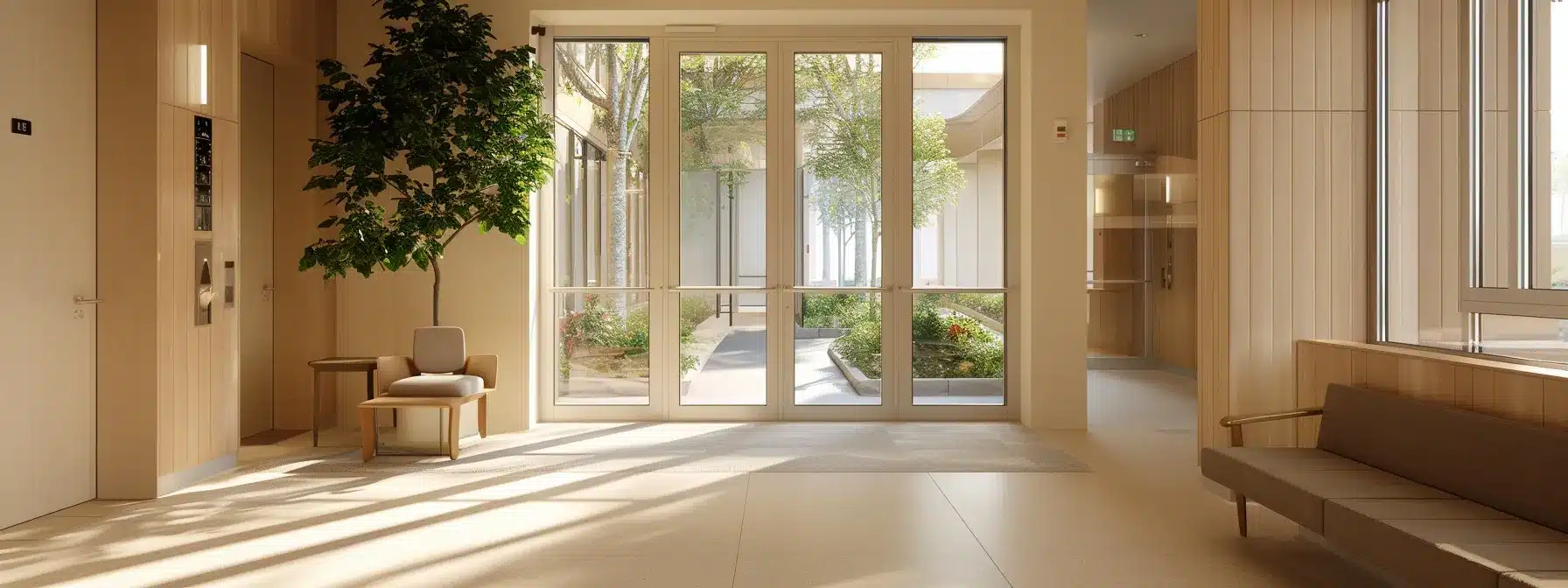Navigate memory care Delray FL with our guide. Discover costs, quality, specialized programs & ensure safe, compassionate support.

Discover Michigan’s Specialized Alzheimer’s Care Facilities
Table Of Contents:
- Essential Features of Specialized Alzheimer Care Facilities in Michigan
- Key Takeaways
- Understanding Specialized Alzheimer Care Facilities in Michigan
- Safety Features That Ensure Resident Well-Being
- Customized Care Plans for Individual Needs
- Therapeutic Programs for Cognitive Engagement
- Specialized Staff Training for Alzheimer Care
- Amenities That Enhance Quality of Life
- Frequently Asked Questions
- Conclusion
Essential Features of Specialized Alzheimer Care Facilities in Michigan
Are specialized Alzheimer care facilities in Michigan truly equipped to handle common challenges faced by families? This post examines key features that distinguish these facilities, including safety enhancements and customized care plans. Readers will learn how therapeutic programs support cognitive engagement while trained staff provide specialized care. The article offers useful insights that address concerns about resident well-being and service quality.
Key Takeaways
- memory lane assisted living offers person-centered dementia care in a home-like setting
- specialized staff provide tailored memory care and prompt responses to behavioral challenges
- heightened security measures ensure resident safety and clear monitoring
- family input shapes care plans and practical communication with professionals
Understanding Specialized Alzheimer Care Facilities in Michigan

Specialized Alzheimer care facilities in Michigan focus on offering tailored solutions for residents who require dedicated support for dementia. They integrate skilled nursing care with specialized programs to manage aggression and provide attentive treatment.
The facilities include services that emphasize a person-centered approach and incorporate estate planning measures, nursing expertise, and medicaid guidance to ensure comprehensive support for residents:
- Person-centered care approaches
- Dementia-specific activity programs
- Skilled nursing support
- Assistance with estate planning and medicaid applications
Residents benefit from environments designed to reduce aggression and promote a calm atmosphere while addressing individual needs. Specialized Alzheimer care settings tailor daily routines to support both physical and mental well-being.
Michigan facilities offer consistent nursing services alongside effective management of dementia-related behaviors. They also provide support for estate planning and medicaid, ensuring that each resident receives dedicated care and operational transparency.
Alzheimer care in Michigan shows how the right approach makes a real difference. The next focus on safety features reveals how care reaches new heights.
Safety Features That Ensure Resident Well-Being

Michigan specialized Alzheimer care facilities enhance resident security with environments designed to prevent wandering, reliable emergency response systems, and trained staff for medical emergencies. Built on guidance from the michigan department of health and human services, these senior living options address disease risks, offer health care, and support with meals on wheels programs.
Secure Environments to Prevent Wandering
Specialized Alzheimer care facilities in Michigan design secure environments that prevent wandering while promoting a clear mind. These settings combine aspects of accessibility found in high-quality care homes with practical measures for veterans and others with a power of attorney guiding their care.
The facility provides strict security protocols and well-planned layouts that ensure a secure environment:
Emergency Response Systems for Immediate Assistance
The emergency response systems in specialized Alzheimer care facilities provide rapid assistance in situations of distress, ensuring that instances of confusion are promptly addressed and that residents feel secure. The use of advanced technology and trained staff minimizes delays, safeguarding the memory of those under care while accommodating processes involving reverse mortgage and elder law inquiries.
Real-time monitoring supports swift action in emergencies, especially for residents who may experience memory lapses or disorientation. The systems implemented by these facilities ensure that care Alzheimer protocols are followed, giving families confidence in the facility’s commitment to operational safety and well-being.
Trained Staff for Handling Medical Emergencies
The trained team at Memory Lane Assisted Living handles medical emergencies with diligence, ensuring that every resident receives prompt attention when unexpected changes in behavior occur. Their expertise also reassures family caregivers by coordinating care efforts effectively within the local area agency guidelines, which supports a steady income flow for the facility and affordable elderly care services.
Skilled staff members are prepared to act quickly in emergencies, addressing issues promptly and with clarity. This practical approach offers family caregivers peace of mind, supporting the community with reliable guidance in managing health concerns amidst evolving behavior patterns in residents.
Safety measures give residents peace of mind, and this care continues to evolve with each person. The next part reveals tailored plans that meet every unique need.
Customized Care Plans for Individual Needs

This section outlines personalized care strategies at specialized Alzheimer care facilities. It covers thorough assessments by Alzheimer care specialists, ongoing evaluations of care plans, and active family input. This residential care approach improves caregiver communication, supports medication management, and meets unique needs comparable to foster care models seen in Wisconsin settings.
Personal Assessment by Alzheimer Care Specialists
The assessment by Alzheimer care specialists at these care facilities involves a careful evaluation of the resident’s condition, emphasizing memory care activities and brain function to design a customized care plan that addresses unique needs. The evaluation considers available health insurance options as an important asset for supporting ongoing care and enhancing overall quality of life.
This personal assessment process uses the expertise of care professionals to pinpoint areas where specific memory care activities can improve brain stimulation and overall wellness. The approach ensures that every care facility not only meets clinical requirements but also becomes a valuable asset to families seeking practical guidance and support in managing the complex needs of their loved ones.
Regular Reviews and Adjustments of Care Plans
Specialized care facilities conduct regular reviews and adjustments of care plans to secure a stable quality of life for residents. This approach to dementia-care ensures that personalized strategies evolve alongside medical needs, similar to practices in home care and nursing home settings within the living assisted living structure.
The methodical process includes expert evaluations and timely updates, aiming to sustain optimal care delivery for each individual. This ongoing approach reinforces resident well-being and provides families with clear insights into the practical results achieved through dedicated dementia-care and home care practices.
Incorporating Family Involvement in Care Decisions
The facility specializes in incorporating family involvement in care decisions by offering resources such as legal aid consultations, memorylanehome support, and guidance on mortgage and estate matters. This practical approach assists family members in working alongside skilled nursing care experts to ensure the care plan meets the unique needs of the resident:
- Collaboration with legal aid professionals for estate matters.
- Support from memorylanehome experts on financing options like mortgage.
- Active participation from family in a senior living community setting.
The care team values clear communication with families, ensuring that their input forms a central part of the decision-making process. This structure proves useful for families seeking a senior living community that offers reliable skilled nursing care while addressing complex care decisions with actionable insights.
The customized care plans build a strong base for a life filled with support and understanding. The next part reveals a new set of therapies designed to spark the mind and keep it active.
Therapeutic Programs for Cognitive Engagement
The facility offers memory care services featuring memory stimulation activities tailored for residents, structured daily routines to limit anxiety, and social interaction opportunities to reduce isolation. It also addresses practical aspects such as meal options, physical therapy, and insurance policy considerations while managing memory care costs effectively.
Memory Stimulation Activities Tailored for Residents
Memory stimulation activities offer residents engaging tasks that boost mental function and uphold activities of daily living. The tailored sessions consider each resident’s medical history and nutrition, ensuring that stress is reduced through routines marked by compassion and clear direction.
Residents benefit from interactive exercises designed to sharpen cognitive skills while easing anxiety related to daily tasks. The programs integrate practical activities that honor individual medical profiles and focus on nutrition, emphasizing a compassionate approach to stress management.
Structured Daily Routines to Reduce Anxiety
Memorycare facilities use structured daily routines to reduce patient anxiety and promote safety; the routines include regular activities, organized housekeeping, and scheduled wellness checks to favor stability and ease for each resident:
- Daily memory exercises that reinforce cognitive function
- Consistent cleaning schedules maintaining a quiet environment
- Regular safety assessments to monitor overall well-being
- Organized meal and rest times to support routine adherence
The memory care facility follows these schedules to address individual patient needs while offering clear support and practical guidance; this structured approach reassures families with visible and reliable care practices tailored for reducing anxiety through consistent everyday activities.
Social Interaction Opportunities to Combat Isolation
Social interaction opportunities enable residents to engage in group therapy sessions that promote mental stimulation and physical movement, supporting overall dignity in care. These sessions foster connections through organized activities and friendly conversations, ensuring that even in a state similar to Indiana, residents experience robust social bonds that can ease feelings of isolation, while a timely emergency response is coordinated by an on-call physician when necessary.
Programs focusing on social interaction allow residents to maintain engagement through planned gatherings and interactive games that build confidence and preserve dignity. Each activity is designed with expert input, mirroring successful methods seen in Indiana, and includes easy access to a physician during an emergency situation to ensure resident safety and prompt care.
The smart play sessions warm the mind and keep spirits high. Next, skilled caregivers share invaluable techniques to care for those with memory challenges.
Specialized Staff Training for Alzheimer Care
This section explains the importance of specialized training at our agency for effective alzheimers-care. The focus is on understanding Alzheimer’s disease progression, techniques for clear communication with residents—including during respite care interactions in the dining room—and acquiring crisis intervention skills to manage behavioral challenges. For more details, please refer to the email address provided for expert insights.
Understanding Alzheimer’s Disease and Progression
Understanding Alzheimer’s disease progression involves recognizing early signs, moderate changes, and advanced stages while incorporating practical elements like proper diet and geriatrics care practices. Caregiver training is vital, as it equips staff with the skills required to manage challenges similar to those faced in adult foster care settings, ensuring support that aligns with life insurance needs and long-term planning.
Trained professionals gain expertise through hands-on experiences and structured learning, building confidence to address real-world issues and communicate effectively with families. The approach includes comprehensive training elements such as:
- Clarified steps to identify disease progression
- Integration of dietary guidance
- Practical caregiver strategies
- Insights from adult foster care contexts
- Principles tailored to geriatrics
Techniques for Effective Communication With Residents
The staff at Memory Lane Assisted Living uses clear and respectful language to communicate with residents, ensuring that each conversation is straightforward and supportive. Their training in practical communication techniques helps them address the specific needs of senior living residents while easing the transition into a secure environment where families can even schedule a tour during retirement planning discussions regarding memory care services.
The specialized training equips caregivers with tools to reduce confusion and listen actively to residents’ preferences. This approach fosters an atmosphere where practical communication bridges the gap between care and comfort, inviting families to schedule a tour and explore memory care services as part of their retirement decisions in a trusted senior living setting.
Crisis Intervention Skills for Behavioral Challenges
Memory Lane Assisted Living trains its caregivers to address sudden behavioral challenges with clear, step-by-step intervention strategies that are practical for everyday situations. The training includes processes for de-escalating situations safely, ensuring resident and staff security:
The specialized staff uses crisis intervention skills to reduce agitation quickly and effectively, drawing on detailed, scenario-based training that aligns with high-quality care protocols. The approach prioritizes rapid response to behavioral triggers to ensure each resident receives safe and respectful support during challenging moments.
Expert caregivers work with purpose and precision, ensuring that every detail matters. Next, the gentle comforts and practical features of our living spaces extend this care into everyday life, inviting residents to thrive.
Amenities That Enhance Quality of Life
The facility provides comfortable living spaces designed for ease of movement, outdoor areas that encourage nature interaction, and meals planned to meet specific dietary needs. These features support resident well-being and create an inviting environment for those requiring specialized Alzheimer care. The upcoming sections detail each amenity’s contribution to an enriched quality of life.
Comfortable Living Spaces Designed for Ease of Movement
Specialized Alzheimer care facilities in Michigan provide living spaces that prioritize clear pathways and accessible design to support ease of movement. The layout allows residents to move safely between areas while reducing confusion and falls, ensuring comfort and a secure environment.
Every detail of these environments, such as spacious corridors and low-set furniture, is carefully planned to promote physical independence and reduce hazards:
The design and thoughtful planning create a practical and comfortable environment that supports everyday mobility and overall quality of life.
Outdoor Spaces Promoting Nature Interaction
The facility offers outdoor environments designed specifically to encourage nature interaction and promote overall well-being. Residents benefit from landscaped gardens, secure walking paths, and quiet sitting areas that help reduce anxiety and support physical activity:
The outdoor spaces are designed with careful consideration of resident needs, offering a practical solution to reduce behavioral challenges associated with dementia. The facility’s commitment to creating balanced and engaging environments supports overall health and adds value to the quality of life for each resident.
Nutrition-Focused Meal Planning for Dietary Needs
Memory Lane Assisted Living prioritizes nutrition-focused meal planning to meet dietary needs and ensure residents receive balanced meals tailored for optimal brain health and overall wellness. This approach includes a structured menu developed by experienced dietitians that covers essential nutrient requirements and supports stable energy levels throughout the day:
- Customized meal plans based on individual health profiles
- Menus rich in fiber and lean protein to support cognitive function
- Regular modifications to address evolving dietary needs
The facility integrates practical meal planning with ongoing monitoring of residents’ nutritional status to help manage health conditions and improve quality of life. Expert caregivers collaborate with nutrition professionals to execute these plans effectively, ensuring consistent delivery of well-balanced meals that address the specific needs of residents in specialized Alzheimer care settings.
Frequently Asked Questions
What defines specialized Alzheimer care facilities in Michigan?
Memory Lane Assisted Living in Michigan offers targeted memory care in a home-like setting, using a person-centered approach that provides specialized attention for individuals with Alzheimer’s and related conditions in Ypsilanti and the greater Ann Arbor region.
How do safety features protect residents in these facilities?
Electronic access, real-time monitoring, and discreet emergency response tools work to protect residents. Such features ensure swift intervention, reducing risks and promoting a secure environment that meets the specialized needs of memory and adult foster care in home-like settings.
How are care plans tailored to each individual’s needs?
At Memory Lane Assisted Living, care plans are customized based on each resident’s health, behavior, and preferences, ensuring personalized guidance and specialized care in a comfortable, small residential setting.
What cognitive engagement programs do these facilities offer?
Memory Lane Assisted Living offers structured memory games, group discussions, and hands-on creative activities that challenge and refresh cognitive abilities, all geared toward supporting those with memory concerns in a secure and home-like environment.
How is staff training adapted for Alzheimer care?
Staff training centers on careful, customized techniques for Alzheimer care. Memory Lane Assisted Living offers practical methods, including scenario-based practice and comprehensive protocols, to deliver specialized attention, strong communication, consistent monitoring, and a secure setting for residents.
Conclusion
Specialized Alzheimer care facilities in Michigan deliver personalized solutions to meet each resident’s unique needs. They offer secure living environments, comprehensive care plans, and hands-on staff training to manage health challenges actively. The facilities prioritize safety, cognitive engagement, and physical well-being through innovative design and structured daily routines. This practical approach instills confidence in families seeking trusted support for dementia care.


